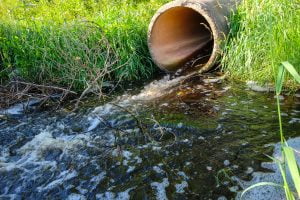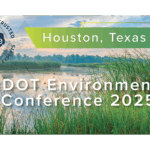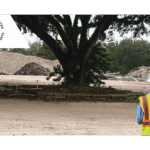
Ecological consulting has become an increasingly important field, especially in urban areas like Dallas, TX. With the rapid expansion of cities and the subsequent impact on the environment, the need for ecological consulting services has grown exponentially in recent years. In this article, we will explore what ecological consulting entails, the services offered by ecological consultants in Dallas, the process of ecological consulting, factors to consider when choosing an ecological consultant, and the future trends in this field.
Understanding Ecological Consulting
Ecological consulting is a specialized service that focuses on assessing and managing the impact of human activities on the natural environment. It involves the study of ecosystems and the identification of potential risks and impacts caused by human actions. The main goal of ecological consulting is to find sustainable solutions that minimize harm to the environment while allowing for human development.
When it comes to ecological consulting, the role of an ecological consultant is of utmost importance. These professionals play a crucial role in advising clients on how to mitigate potential ecological impacts and conserve natural resources. They possess a deep understanding of ecological systems and their intricate relationships, allowing them to assess the ecological value and sensitivity of a site accurately. Based on their assessments, they provide recommendations for sustainable land use practices that strike a balance between human needs and environmental preservation.
Moreover, ecological consultants are instrumental in ensuring that development projects adhere to environmental regulations and best practices. They work closely with project managers, architects, and engineers to integrate ecological considerations into the planning and design phases. By doing so, they help to minimize the negative impacts of human activities on the environment while also achieving the desired objectives of the project.
The Role of an Ecological Consultant
An ecological consultant plays a crucial role in advising clients on how to mitigate potential ecological impacts and conserve natural resources. They assess the ecological value and sensitivity of a site and provide recommendations for sustainable land use practices. Their expertise is instrumental in ensuring that development projects adhere to environmental regulations and best practices, while also achieving the desired objectives.
Ecological consultants possess a diverse skill set that allows them to tackle a wide range of challenges. They are well-versed in conducting ecological surveys, collecting and analyzing data, and assessing the potential impacts of human activities on ecosystems. They are also knowledgeable about local and regional environmental regulations, ensuring that projects comply with legal requirements.
Furthermore, ecological consultants often collaborate with other professionals, such as biologists, hydrologists, and landscape architects, to develop comprehensive and integrated solutions. By working together, they can address complex ecological issues and design strategies that promote environmental sustainability.
Importance of Ecological Consulting in Urban Planning
In urban planning, ecological consulting is vital to strike a balance between development and environmental preservation. With cities expanding rapidly, it is essential to consider the ecological implications of construction projects, infrastructure development, and land use changes. Ecological consultants assess the potential impacts on local flora and fauna, water resources, and air quality. By doing so, they help to create sustainable urban spaces that are livable and harmonious with nature.
Urban areas are often characterized by a high density of human activities, which can have significant ecological consequences if not managed properly. Ecological consultants play a critical role in identifying potential risks and providing recommendations to minimize environmental harm. They consider factors such as habitat fragmentation, loss of biodiversity, and pollution, and work towards finding innovative solutions that promote ecological resilience in urban environments.
Furthermore, ecological consulting in urban planning goes beyond the immediate environmental impacts. It also takes into account the social and economic aspects of development. By integrating ecological considerations into urban planning, ecological consultants help create vibrant and sustainable communities that prioritize the well-being of both humans and the natural environment.
Services Offered by Ecological Consultants in Dallas
Ecological consultants in Dallas offer a range of services aimed at assessing, managing, and conserving natural resources. These services are designed to ensure that projects comply with environmental regulations and promote sustainable development.
Habitat Assessments and Management
One of the key services offered by ecological consultants is habitat assessments and management. They evaluate the quality and biodiversity of a site’s habitats and provide strategies for their preservation and restoration. Through the implementation of habitat management plans, consultants aid in the protection of endangered species and the enhancement of ecological resilience.
Environmental Impact Assessments
Environmental impact assessments (EIA) are another important service provided by ecological consultants. They are essential in identifying and evaluating the potential environmental effects of a proposed project. By conducting thorough assessments, consultants help project developers understand the ecological risks and propose measures to mitigate them.
Conservation Planning and Management
Ecological consultants also specialize in conservation planning and management. They work closely with clients to develop strategies for the long-term protection and sustainable management of natural resources. This can include the establishment of protected areas, the implementation of conservation projects, and the development of monitoring programs to track the effectiveness of conservation efforts.
The Process of Ecological Consulting
The process of ecological consulting typically involves several stages, each playing a critical role in achieving the desired environmental outcomes. Understanding this process can help clients and project developers appreciate the comprehensive approach taken by ecological consultants.
Initial Consultation and Site Assessment
The first step in the process is the initial consultation and site assessment. Ecological consultants meet with clients to gather information on the project and its objectives. They then conduct a detailed assessment of the site’s existing ecological conditions to identify potential risks and ecological resources that need protection.
Developing an Ecological Management Plan
Based on the site assessment, ecological consultants develop an ecological management plan. This plan outlines specific actions and strategies to minimize the project’s impact on the environment. It includes measures for habitat preservation, resource conservation, and the restoration of degraded areas. The plan is tailored to meet the unique requirements of each project.
Implementation and Monitoring of the Plan
Once the ecological management plan is developed, the next step is its implementation. Ecological consultants work closely with clients and project teams to ensure that the recommended measures are integrated into the project’s design and construction phases. After implementation, they monitor the effectiveness of the plan and make any necessary adjustments to achieve the desired environmental outcomes.
Choosing the Right Ecological Consultant in Dallas
When selecting an ecological consultant in Dallas, several factors should be considered to ensure that you choose the right professional for your project.
Factors to Consider When Hiring an Ecological Consultant
Firstly, it is essential to consider the consultant’s experience and expertise in ecological consulting. Look for consultants with a proven track record of successful projects and a deep understanding of local ecosystems. Additionally, consider their familiarity with relevant environmental regulations and their ability to navigate the permitting process.
Qualifications and Experience of Ecological Consultants
Another crucial factor to consider is the qualifications and experience of the ecological consultants. Look for professionals with relevant degrees in environmental science, ecology, or related fields. Additionally, certifications and memberships in professional organizations demonstrate a commitment to continuous learning and staying updated with industry best practices.
Future Trends in Ecological Consulting
As the field of ecological consulting continues to evolve, several emerging trends are reshaping the industry and its practices.
The Impact of Climate Change on Ecological Consulting
Climate change is having a profound impact on ecological consulting. Rising temperatures, changing rainfall patterns, and the increasing frequency of extreme weather events pose new challenges for ecological consultants. As a result, consultants are focusing on developing climate change adaptation strategies and incorporating climate resilience into their planning and management processes.
Technological Advancements in Ecological Consulting
The advancement of technology is revolutionizing ecological consulting. Remote sensing techniques, geographic information systems (GIS), and drone surveys provide ecological consultants with powerful tools for data collection, analysis, and visualization. These technological advancements enhance the accuracy and efficiency of ecological assessments, allowing for more informed decision-making and improved environmental outcomes.
In conclusion, ecological consulting plays a crucial role in urban planning and development, ensuring a balance between human activities and the natural environment. In Dallas, TX, ecological consultants offer a range of services, including habitat assessments, environmental impact assessments, and conservation planning. The process of ecological consulting involves initial consultation, site assessment, developing an ecological management plan, and its implementation and monitoring. When choosing an ecological consultant, factors such as experience and qualifications should be considered. Finally, future trends in the field, such as climate change adaptation and technological advancements, are shaping the future of ecological consulting.
If you’re ready to ensure your project in Dallas, TX aligns with the highest standards of environmental sustainability and compliance, look no further than ESE Partners. As leaders in ecological consulting, our team at Environmental Science and Engineering Partners is dedicated to responsibly moving your business forward through innovative environmental problem-solving. With a strong presence in Dallas-Fort Worth and expertise in water compliance, due diligence, remediation, and more, we are equipped to manage all aspects of your environmental needs. Request A Proposal today and partner with us for honest, quality-driven results that not only meet but exceed regulatory requirements. Let ESE Partners be your guide through the changing landscape of environmental consulting.








